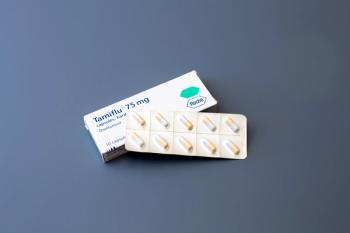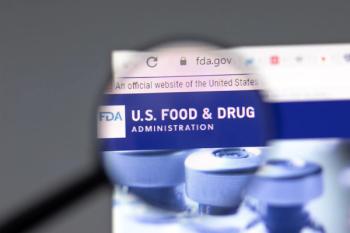
Explore effective solutions for managing dry mouth, teething discomfort, dental abscess pain, and proper denture care in this comprehensive guide.

Explore effective solutions for managing dry mouth, teething discomfort, dental abscess pain, and proper denture care in this comprehensive guide.

BV-R2 combination shows survival benefit across high-risk subgroups.

The JD Power 2025 US Pharmacy Study reveals rising satisfaction with mail-order pharmacies and supermarkets, driving a shift in prescription fulfillment preferences.

Natural compounds like Prunus armeniaca and bee venom enhance breast cancer treatment, boosting efficacy and reducing adverse effects.

Brensocatib emerges as the first FDA-approved treatment for non-cystic fibrosis bronchiectasis, revolutionizing care and targeting chronic inflammation.

New research reveals that novel biomarkers enhance risk prediction for kidney failure and mortality in chronic kidney disease (CKD), paving the way for personalized treatment.

Pharmacists play a crucial role in improving vaccination rates among patients with cancer, addressing barriers, and enhancing patient education in oncology care.

Host Craig Beavers reviews key studies and insights from the upcoming ESC Congress 2025, focusing on groundbreaking research in cardiology and treatment advancements.

Pharmacists help connect patients with the correct resources and help remove barriers so patients can receive continuous care.

Oncology pharmacists could be canaries in the coal mine of health care systems.

Prompt identification and appropriate clinical intervention are critical.

Glofitamab-GemOx improves survival in transplant-ineligible patients with R/R DLBCL.

In a phase 3 trial, V116 demonstrated significant immunogenicity in older adults who had not before received a pneumococcal vaccination.

New research confirms oseltamivir (Tamiflu; Roche) is safe for children, reducing flu-related neuropsychiatric risks and encouraging timely antiviral treatment.

Harvard researchers reveal lithium deficiency as a potential early driver of Alzheimer disease, suggesting new treatment avenues for patients.

NRX-100 receives FDA fast track designation, offering hope for treating suicidal ideation in depression and bipolar disorder, addressing a critical health crisis.

Amy C. Nieto delves into the latest advancements in non-small cell lung cancer (NSCLC) treatment, including sunvozertinib, a newly-approved therapy for challenging EGFR exon 20 insertion mutations.

Individuals who have survived childhood cancer had a higher risk of developing a severe COVID-19 infection, while exhibiting a lower risk of contracting the virus.

Pharmacists enhance patient care by integrating nutrition counseling, addressing gaps in training, and promoting chronic disease prevention through accessible health support.

Pharmacists can educate patients and health care professionals in addition to coordinating lab orders, interpreting results, and guiding patients through the next steps.

The action follows 2 FDA-issued complete response letters.

From admission to discharge and beyond, pharmacists reduce medication errors, improve adherence, and prevent costly readmissions.

Multiple FDA-approved drugs without lipid-lowering indications were identified to have potential lipid-lowering properties.


SWIFT-seq revolutionizes multiple myeloma diagnosis, offering a noninvasive blood test that enhances monitoring and risk assessment for patients.

The action is supported by positive safety and efficacy findings from the phase 1a/1b first-in-human Beamion LUNG-1 trial.

Intranasal insulin shows promise in targeting memory regions of the brain, offering new hope for Alzheimer disease treatment in older adults.

Older adults in the United States continue to be burdened with disproportionate rates of community-acquired pneumonia hospitalizations, including due to serotypes covered in the recently approved V116 vaccine.

Jennifer Goldman, PharmD, CDCES, BC-ADM, FCCP, explains the different stages of type 1 diabetes, teplizumab’s use, and emphasizes the pharmacist’s role in care.
